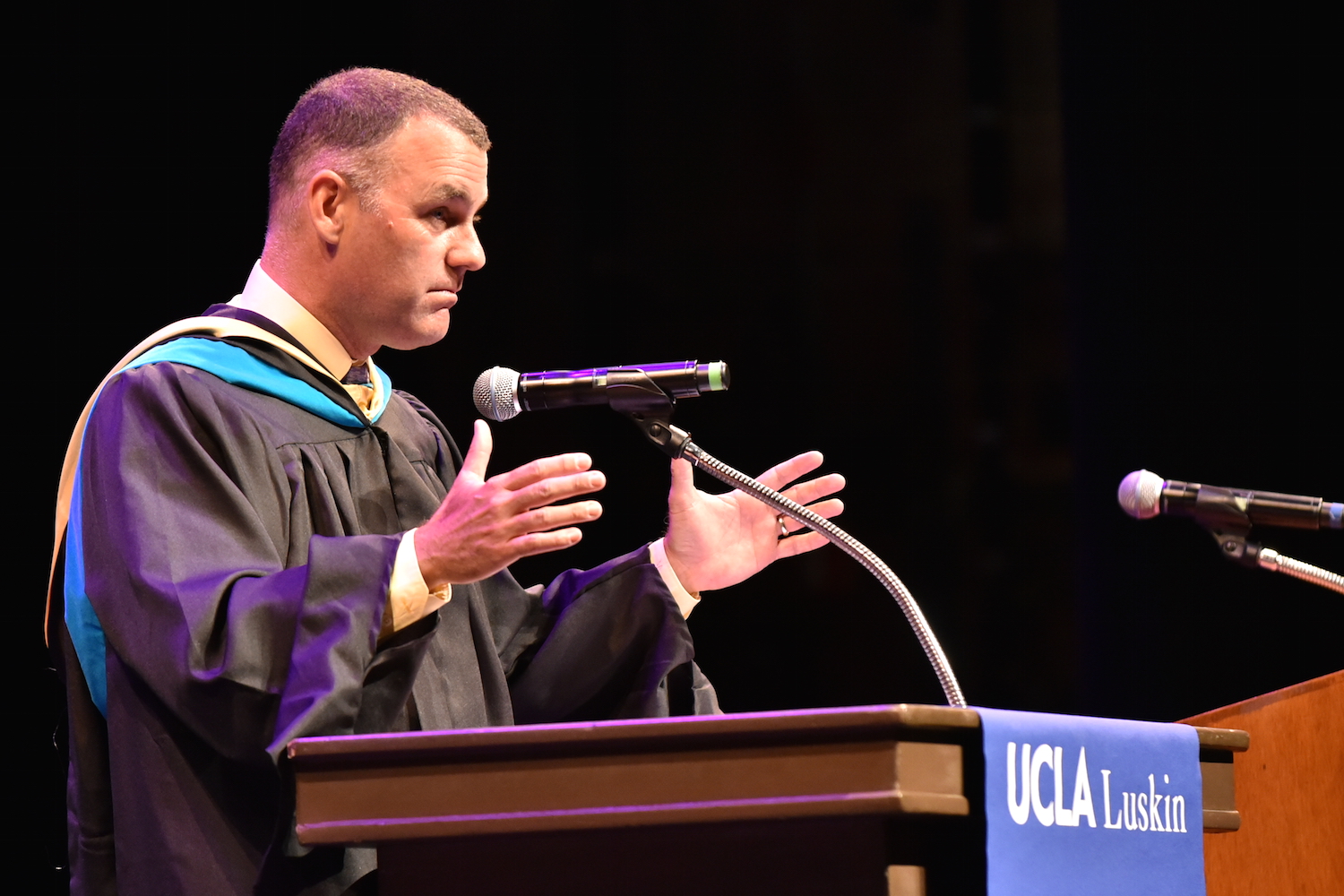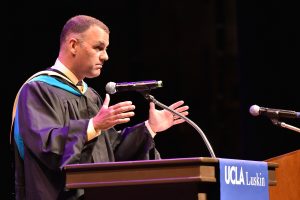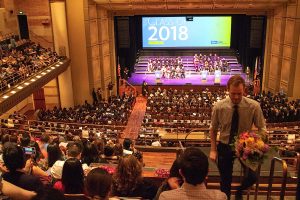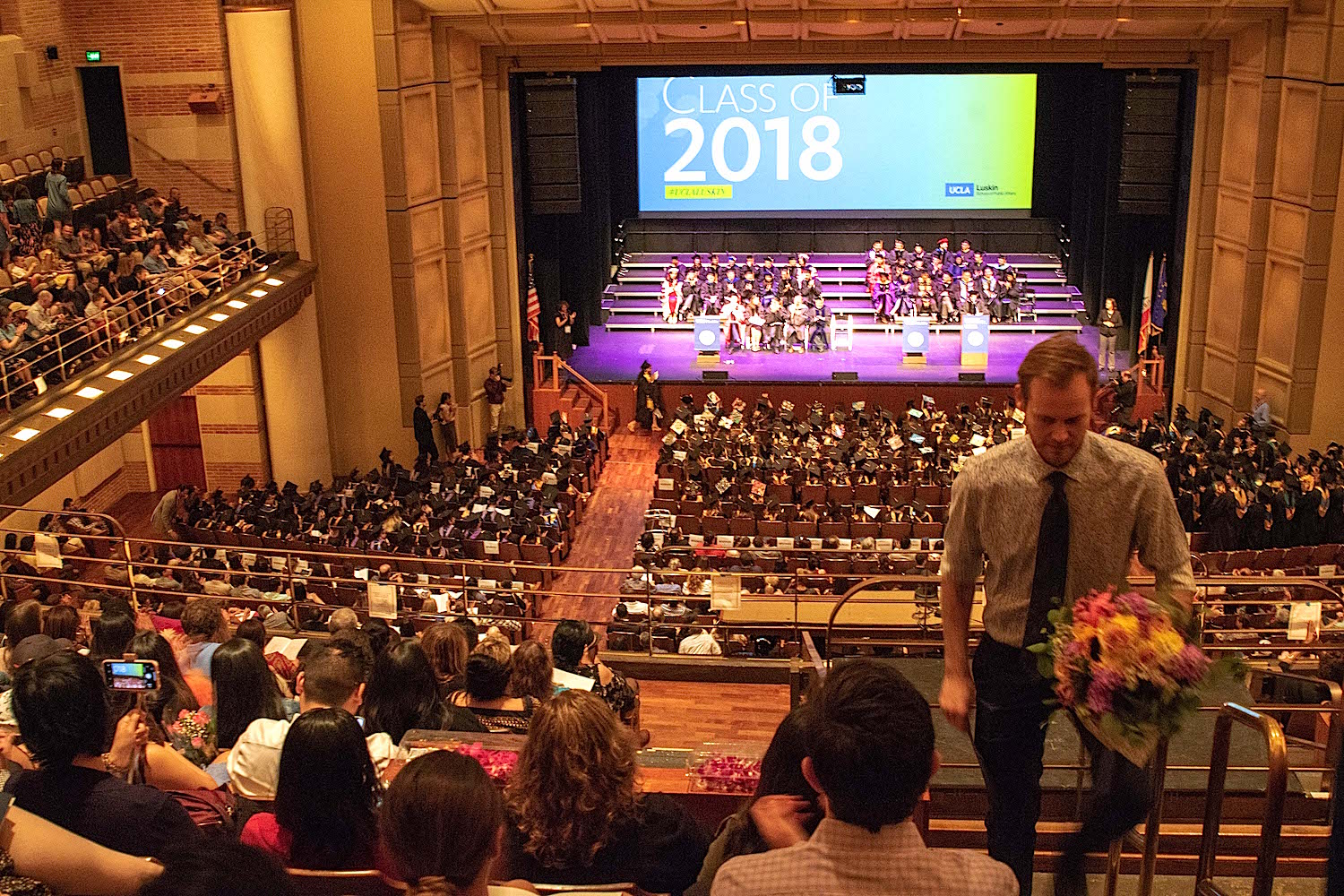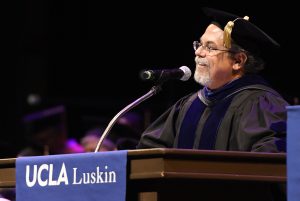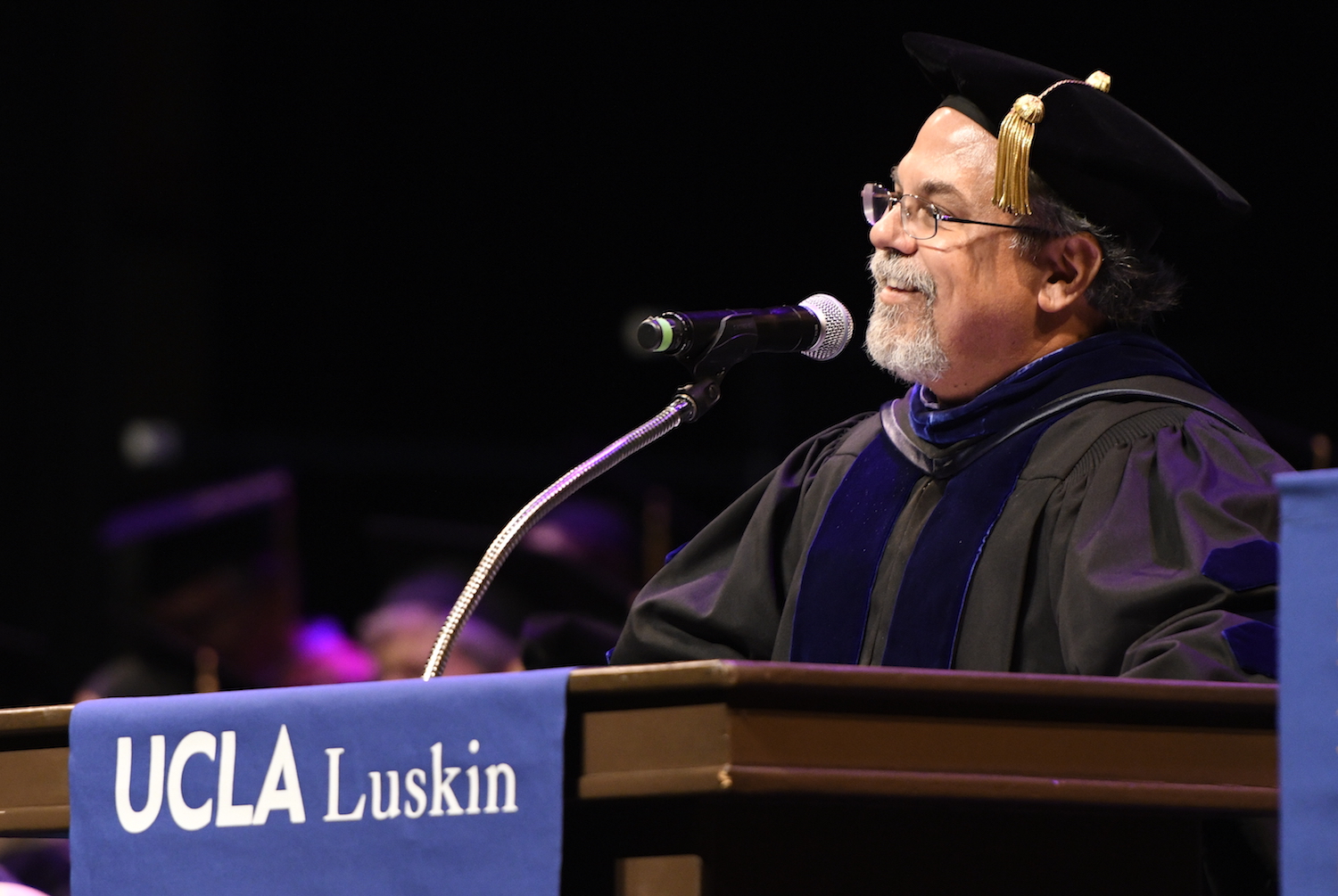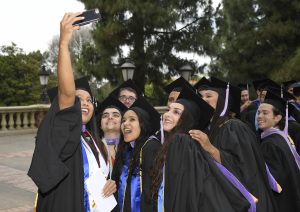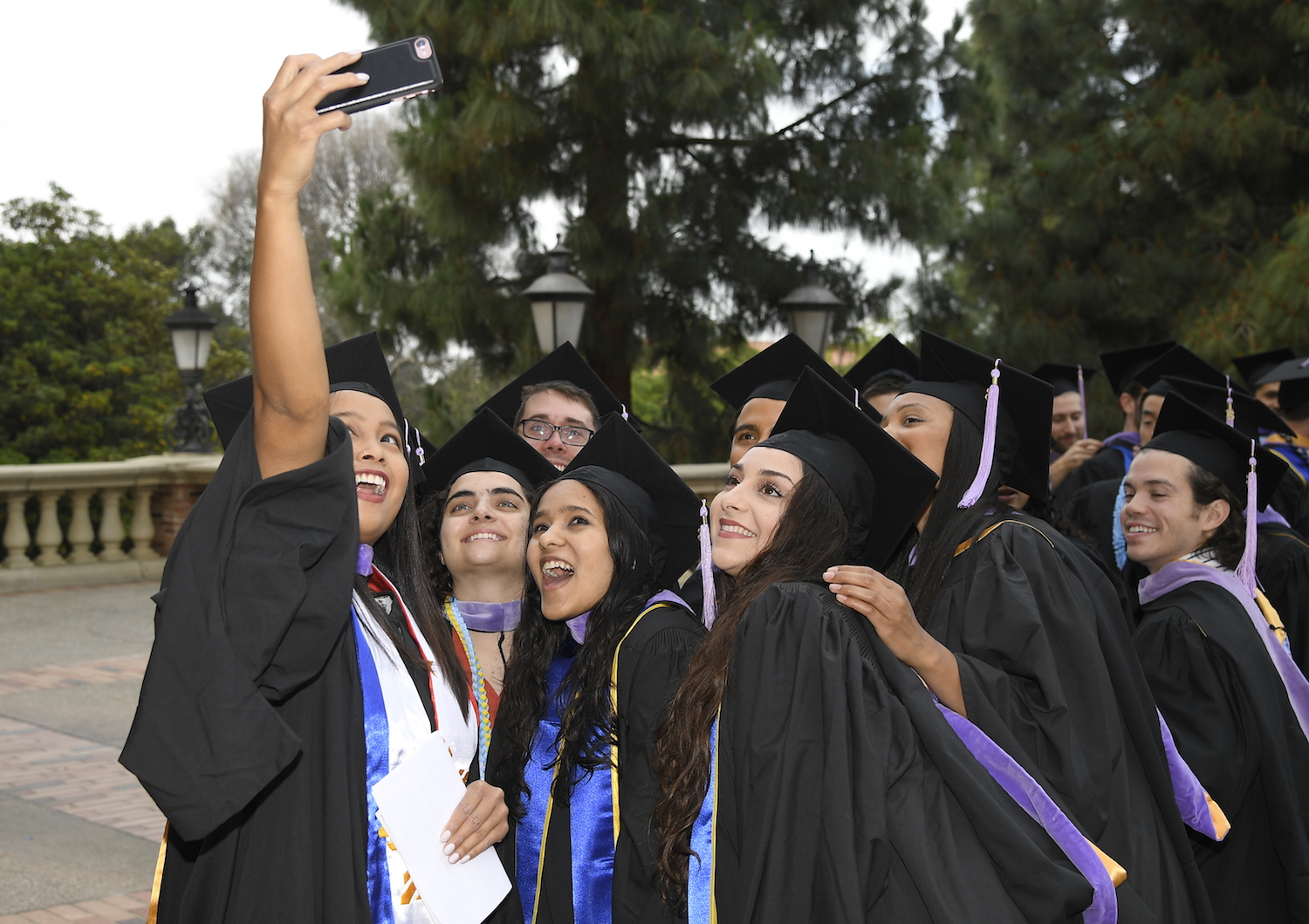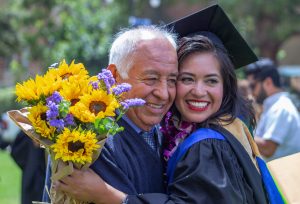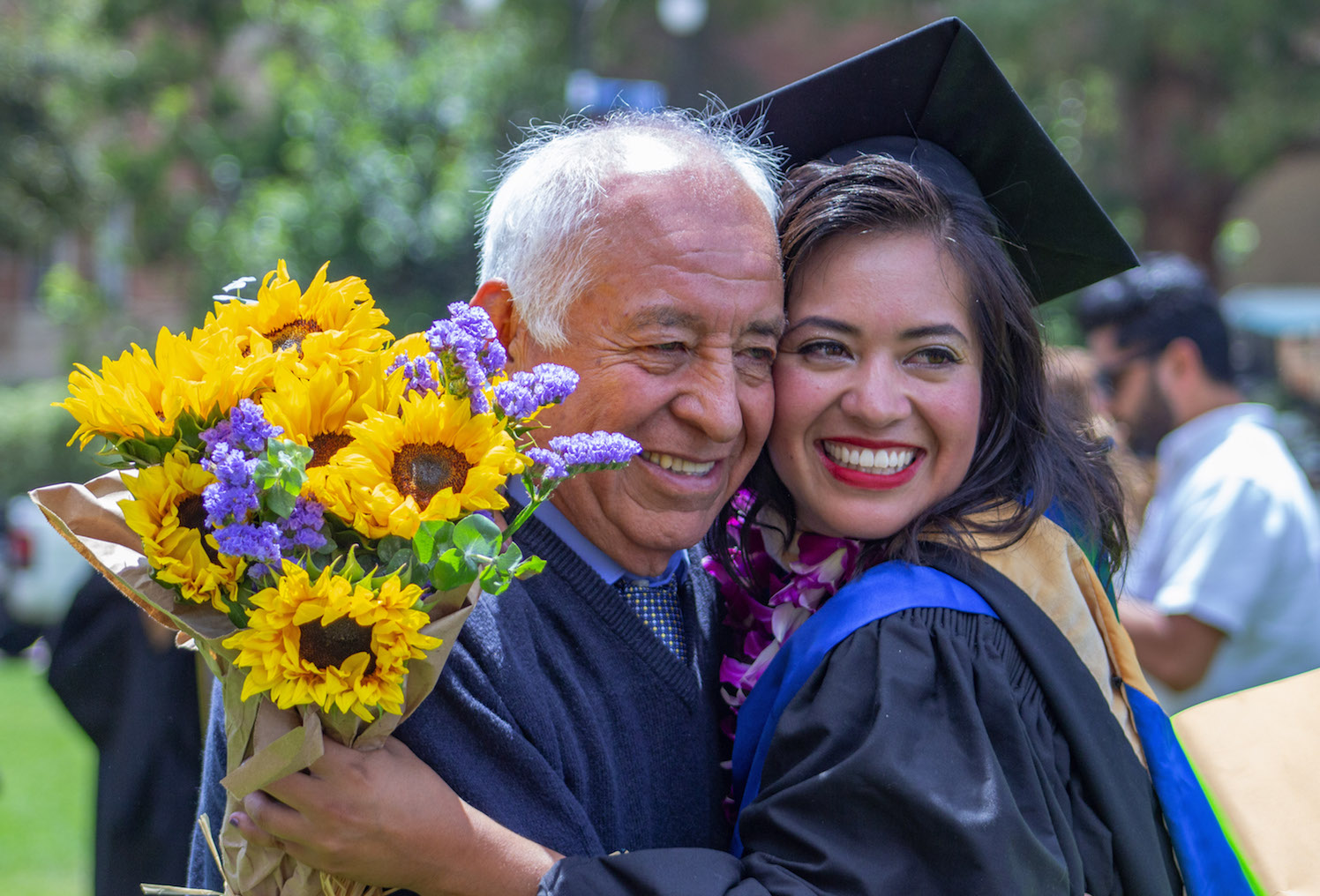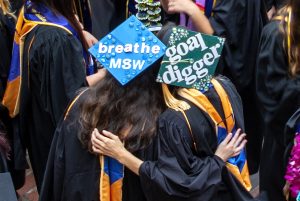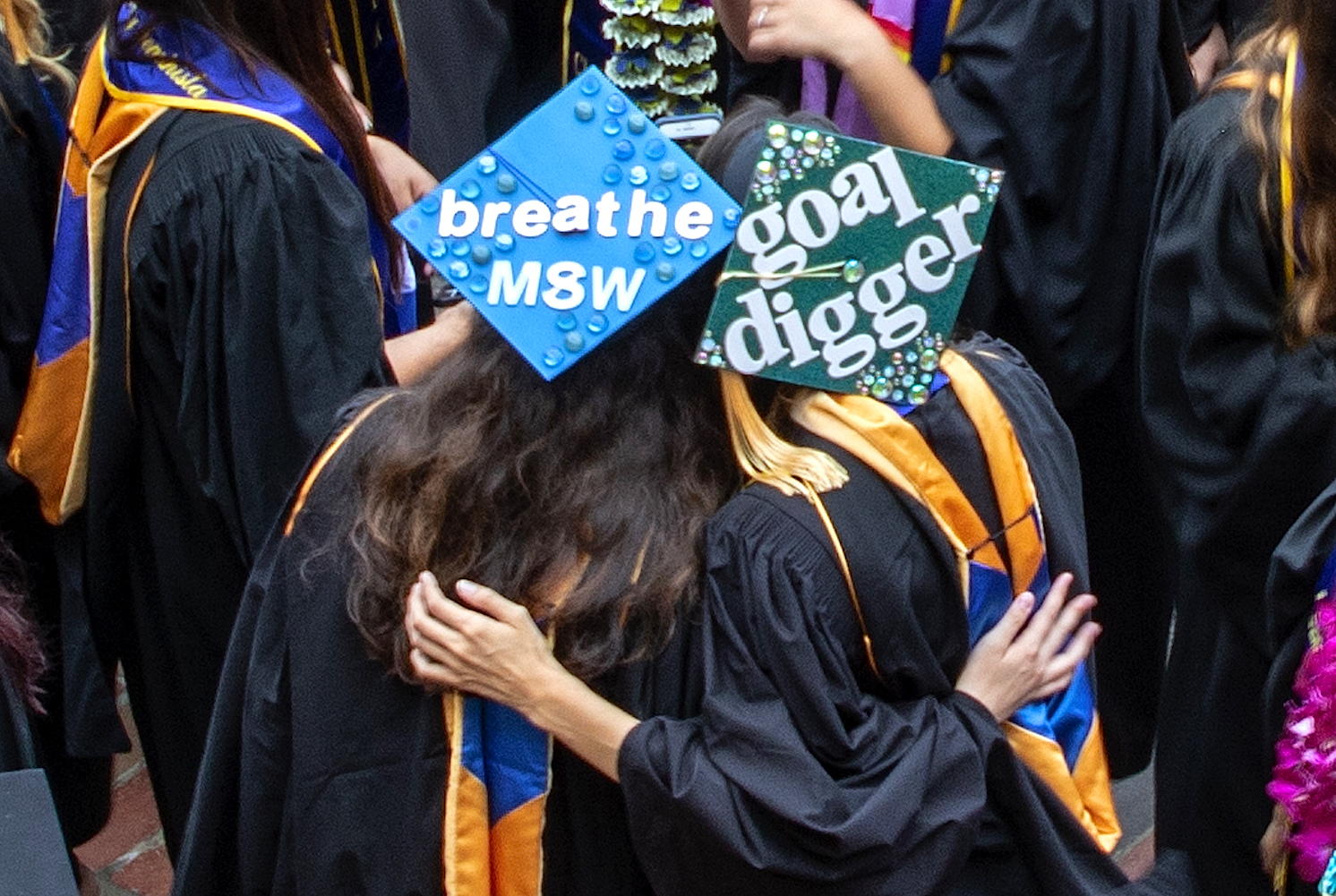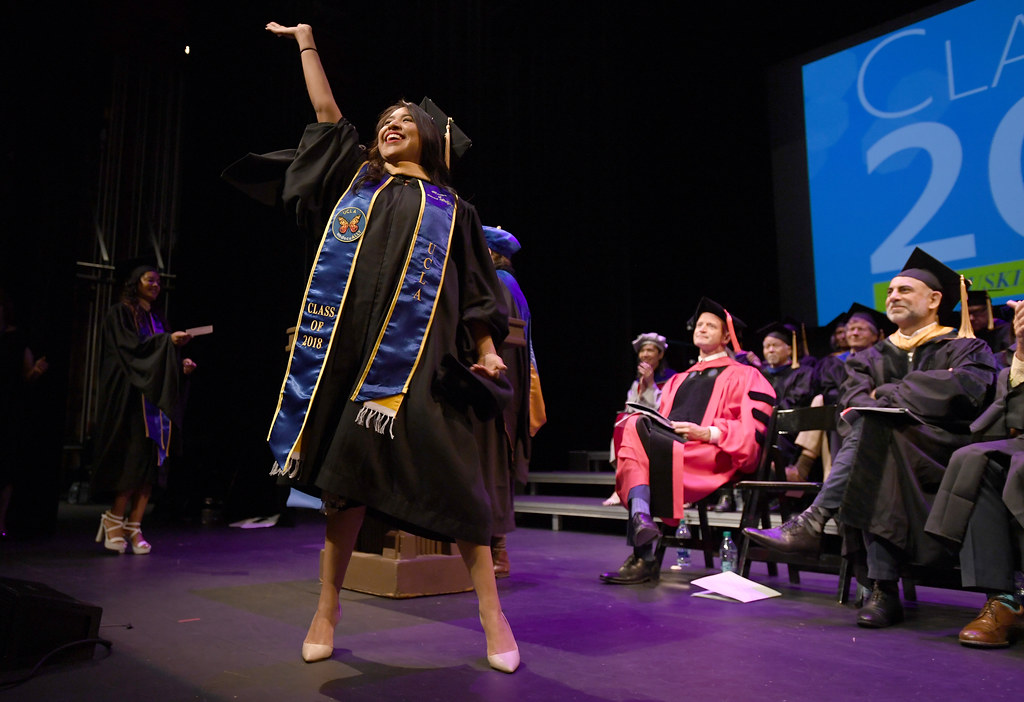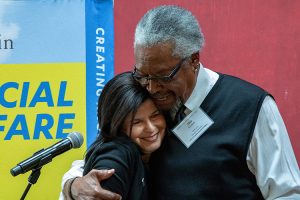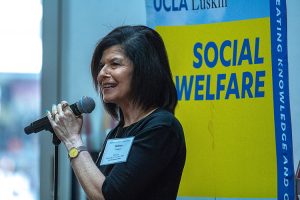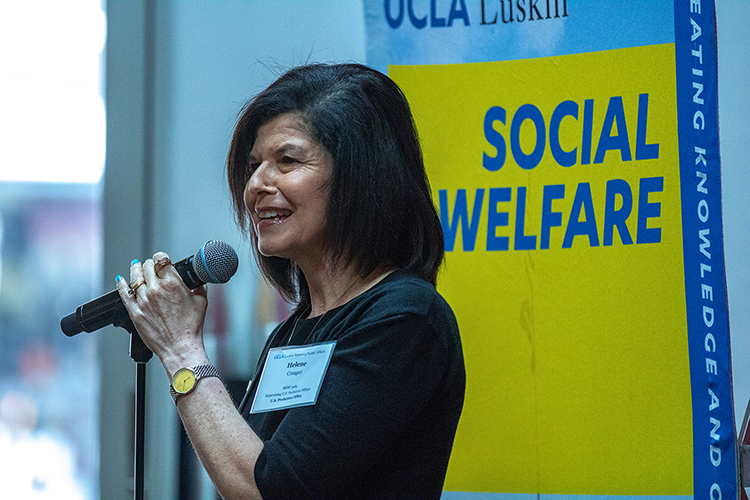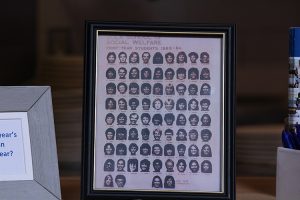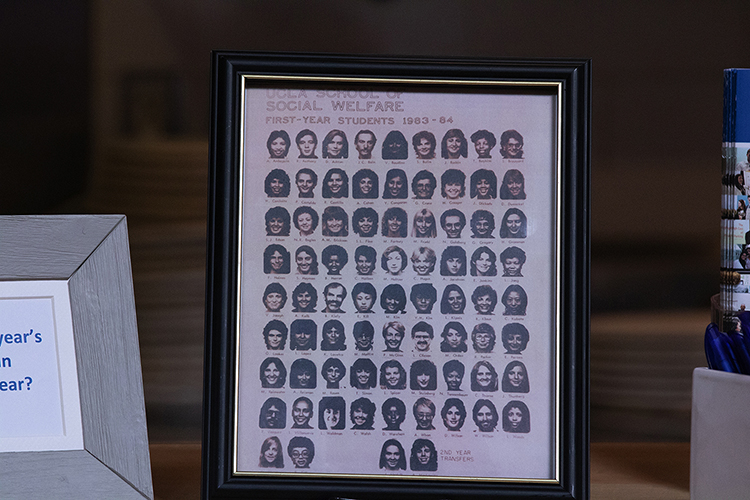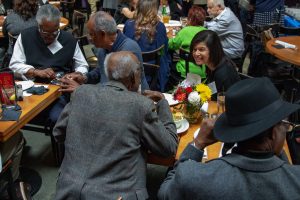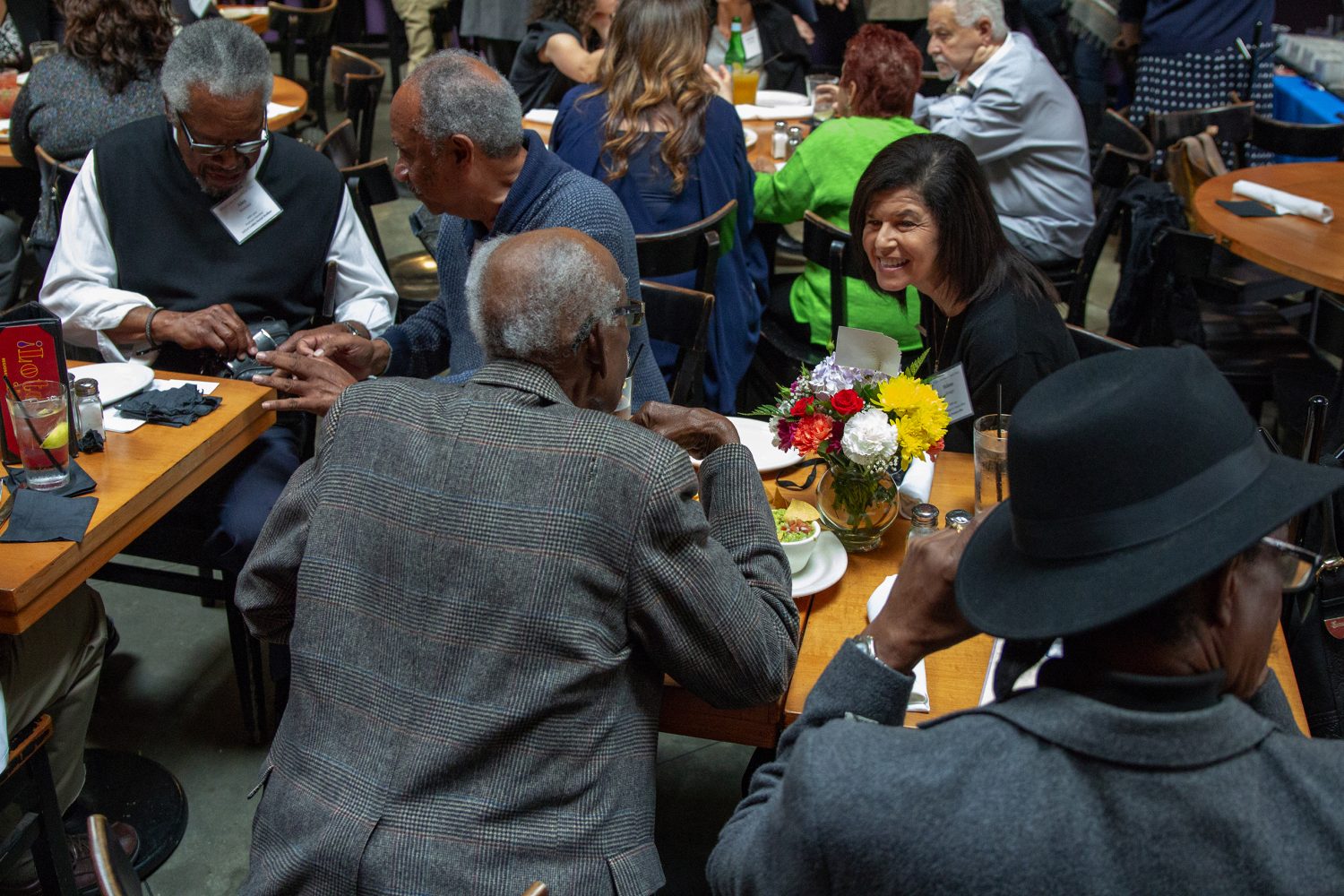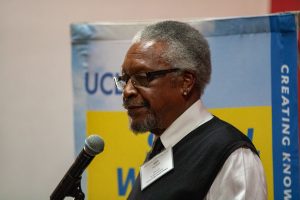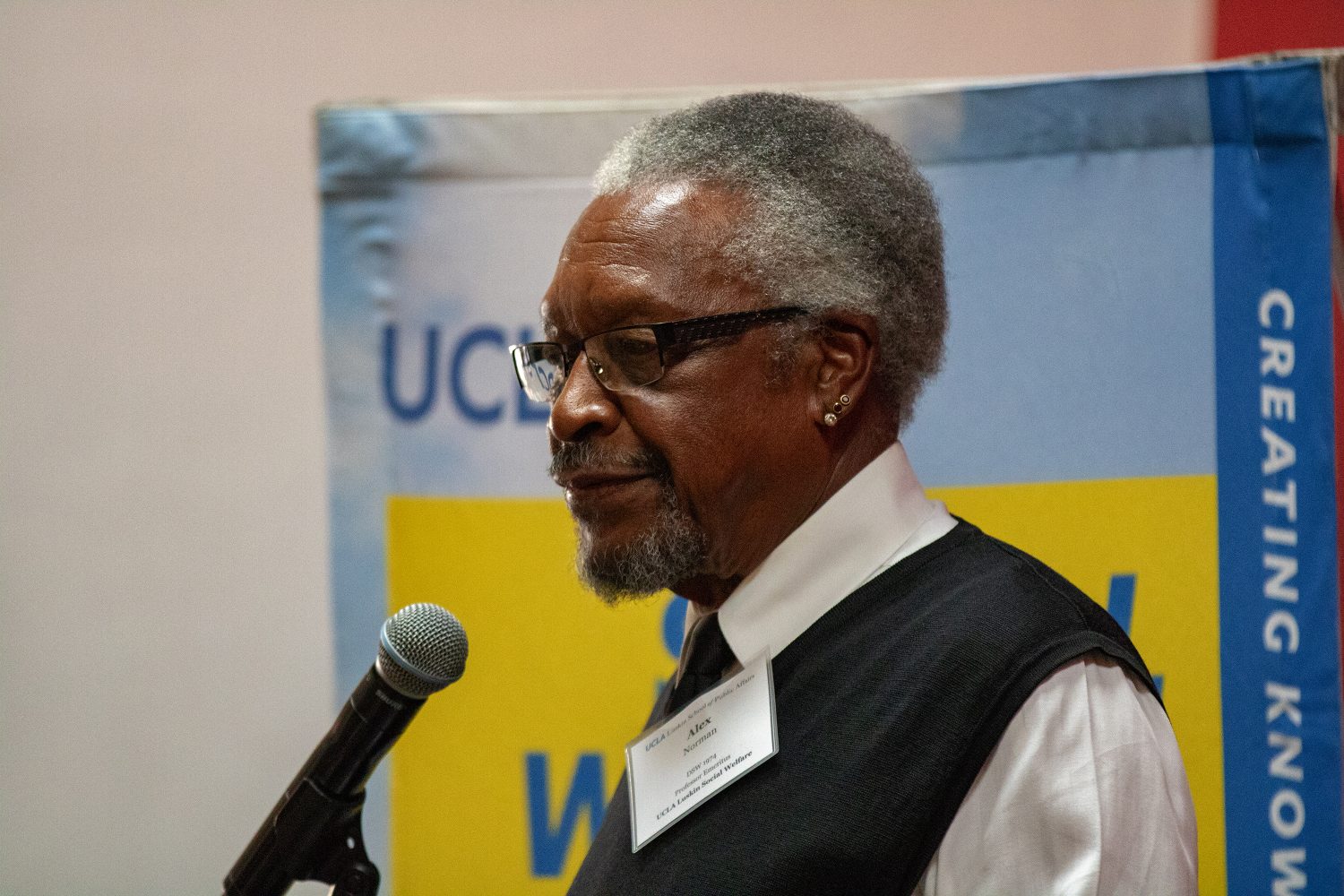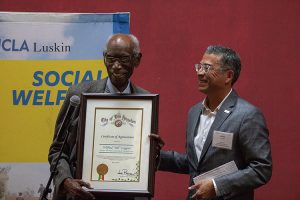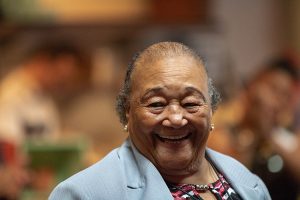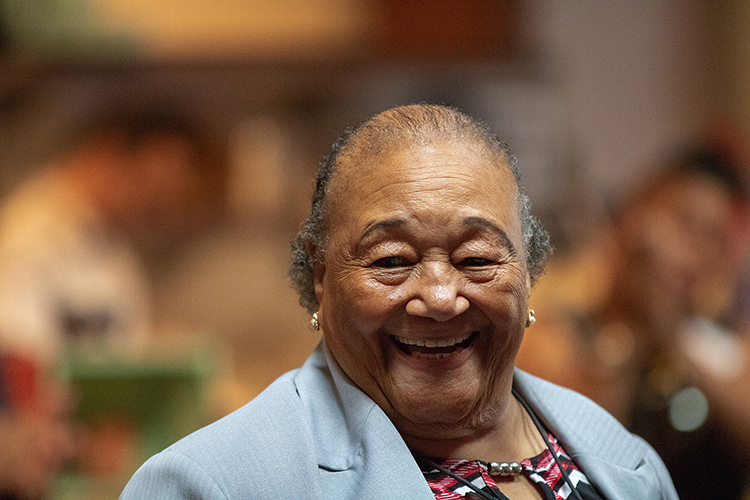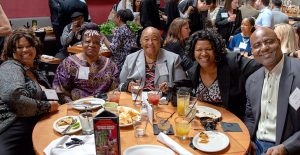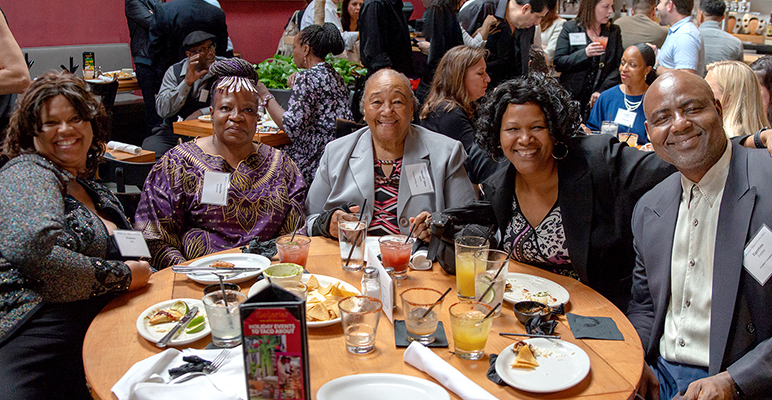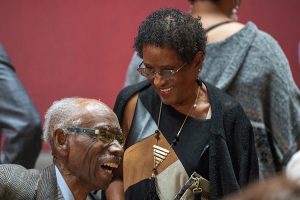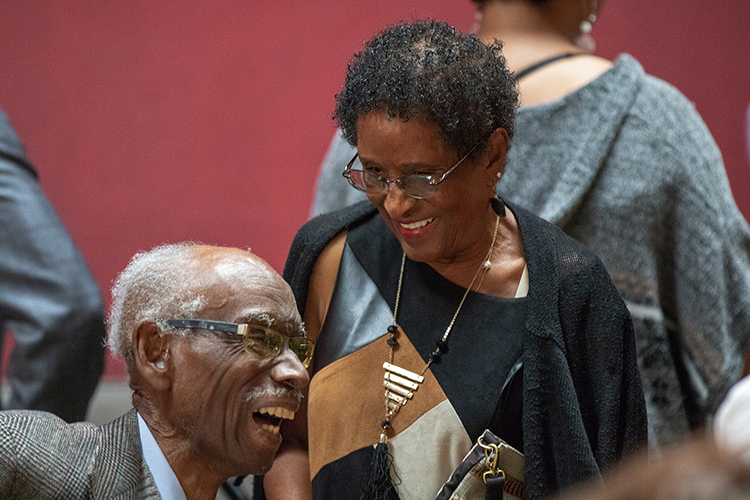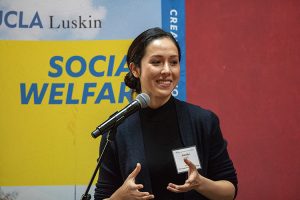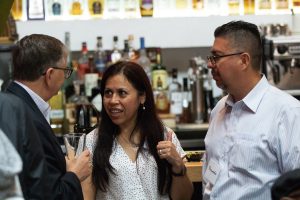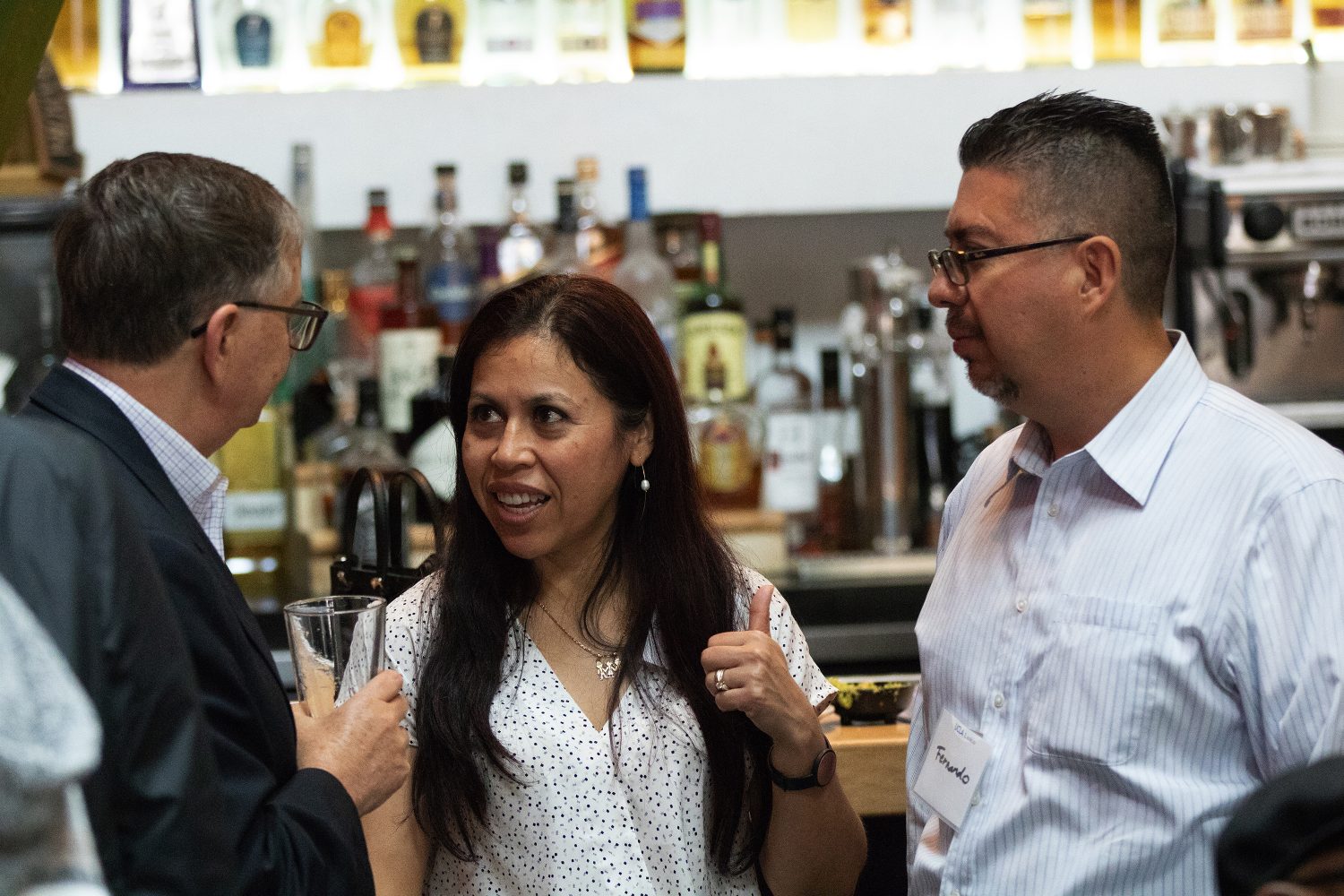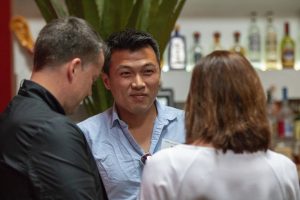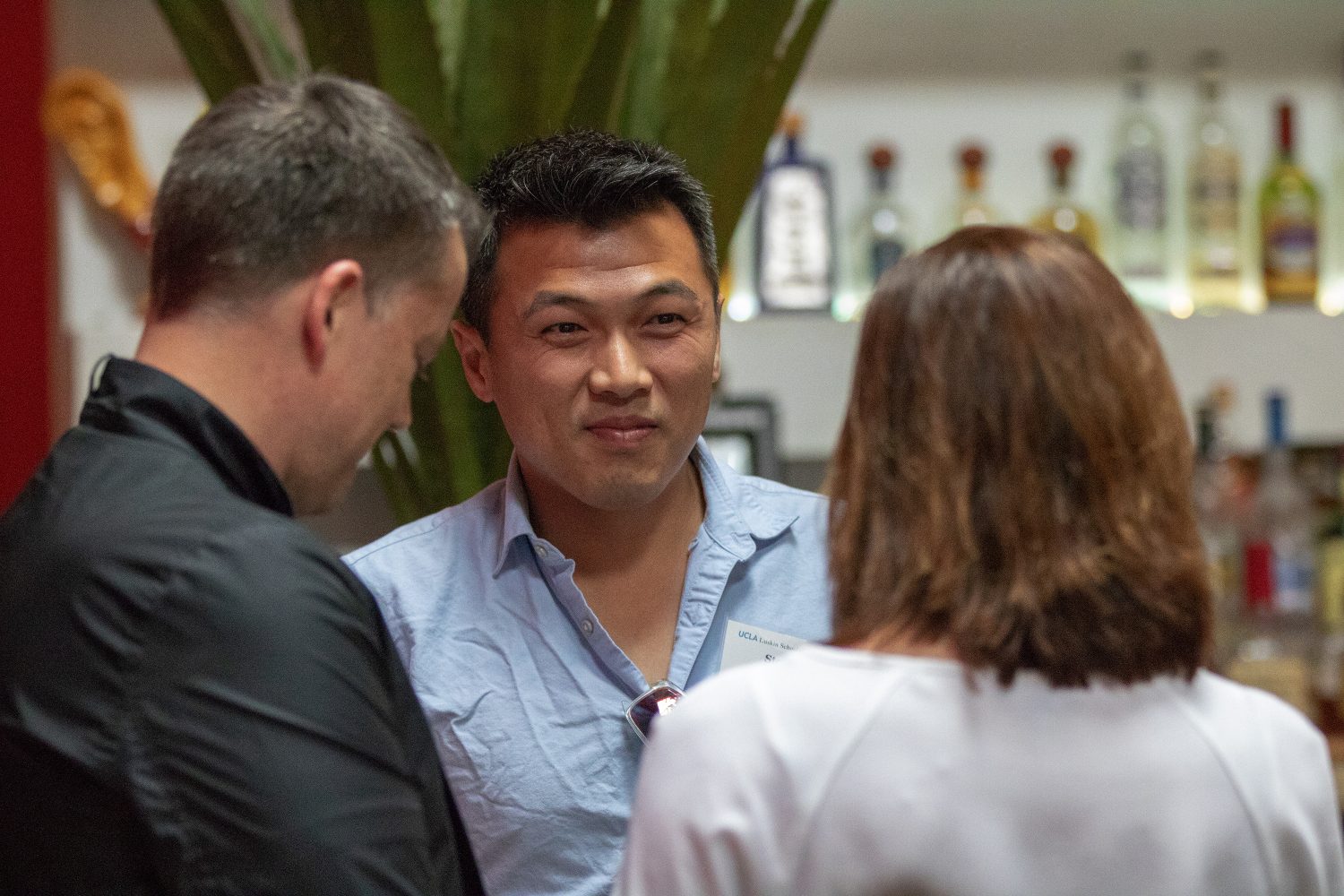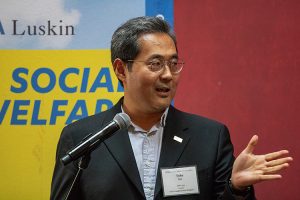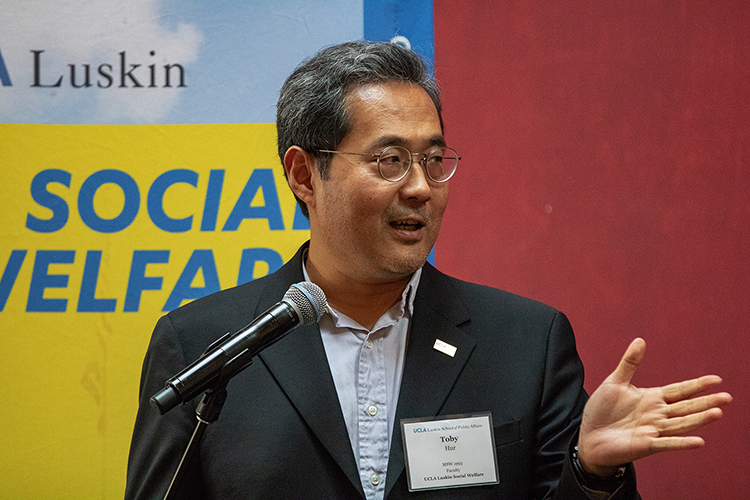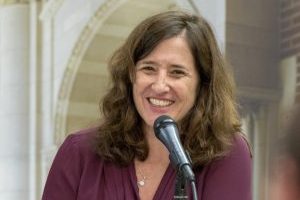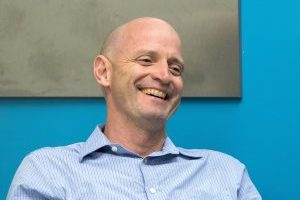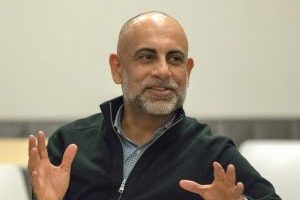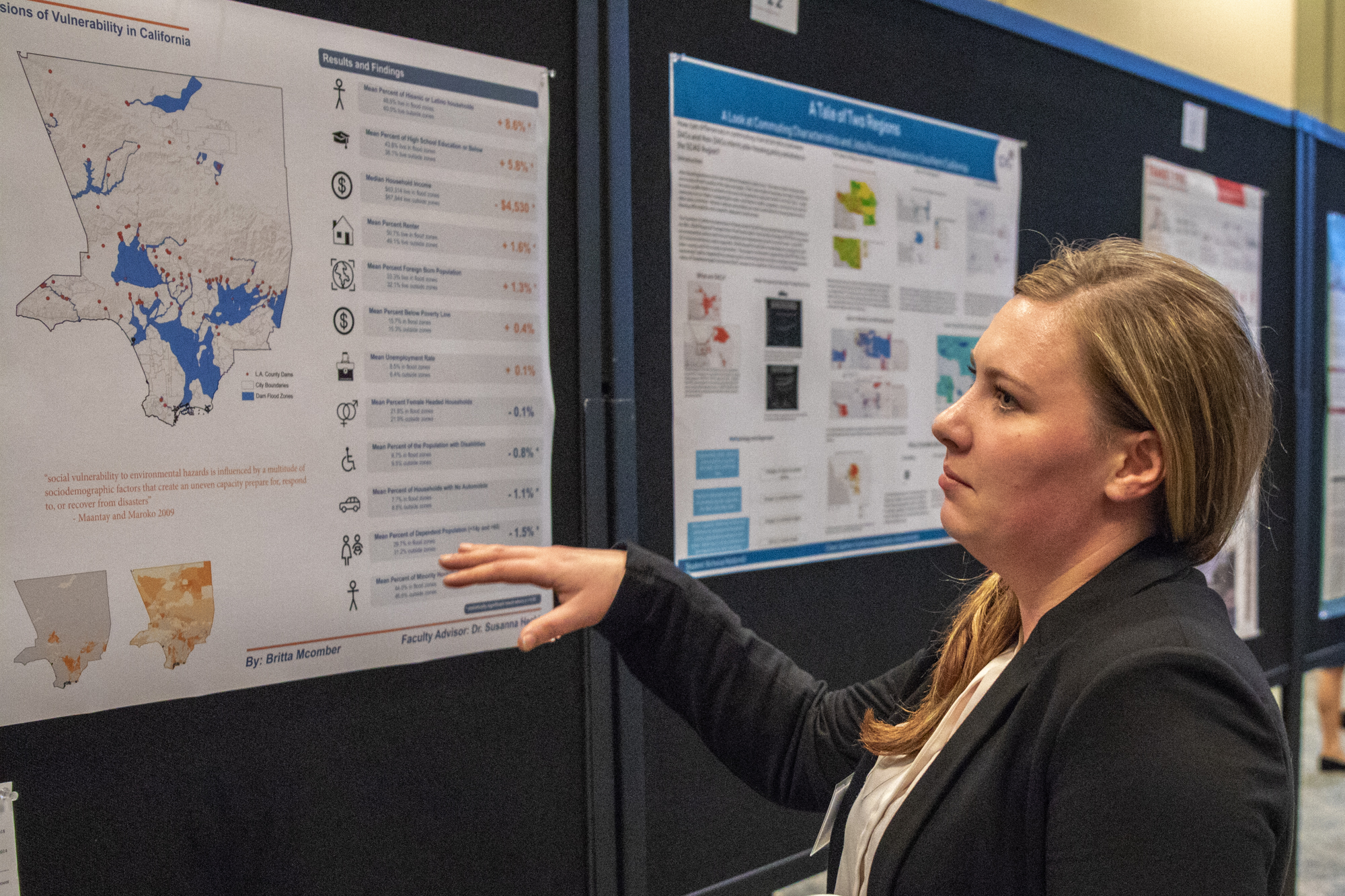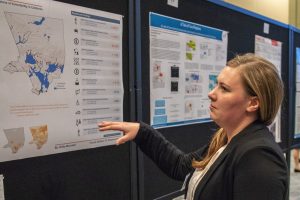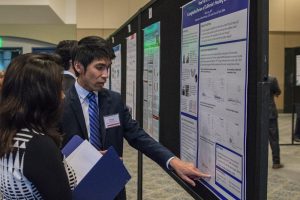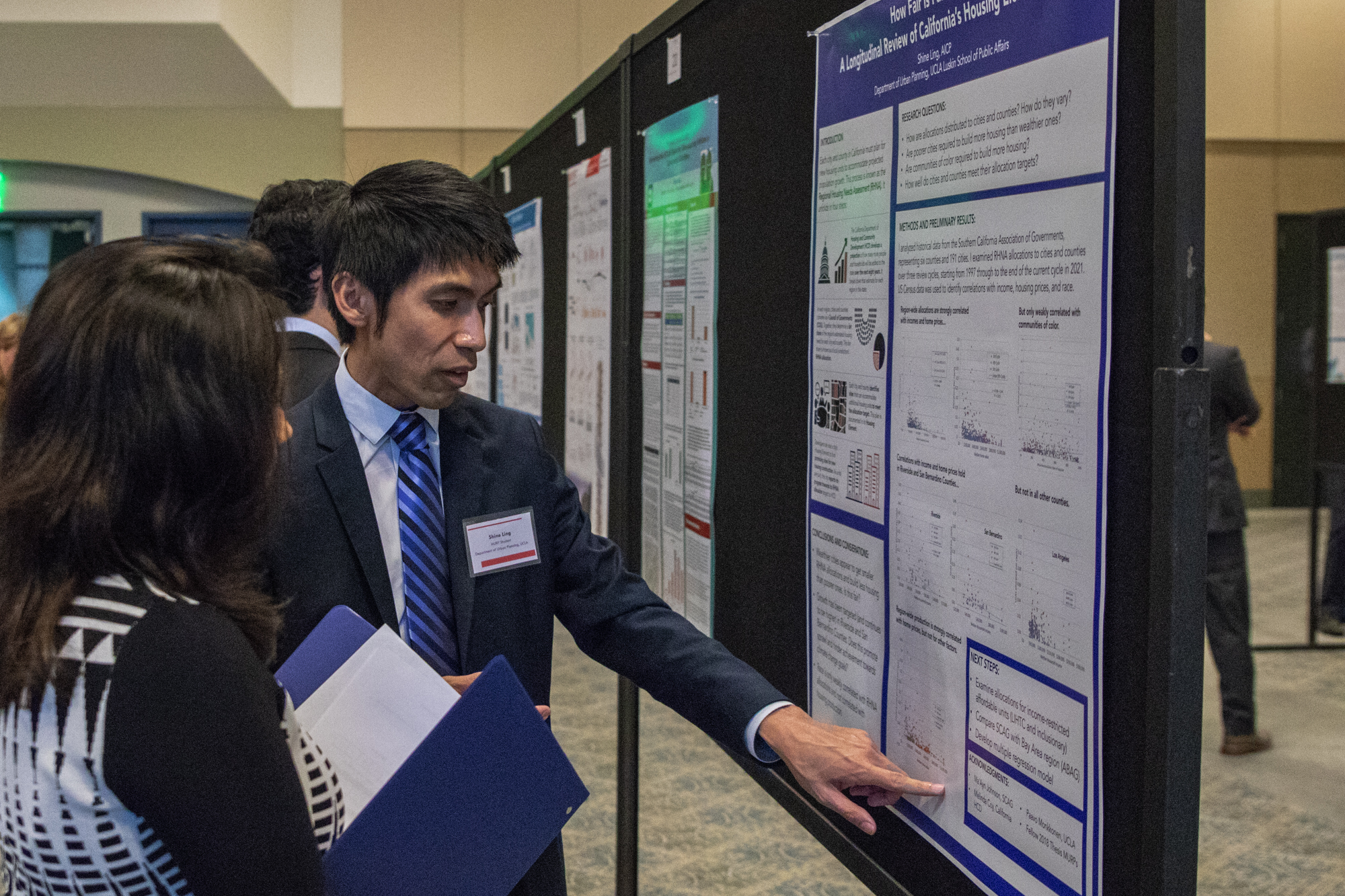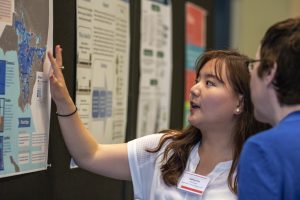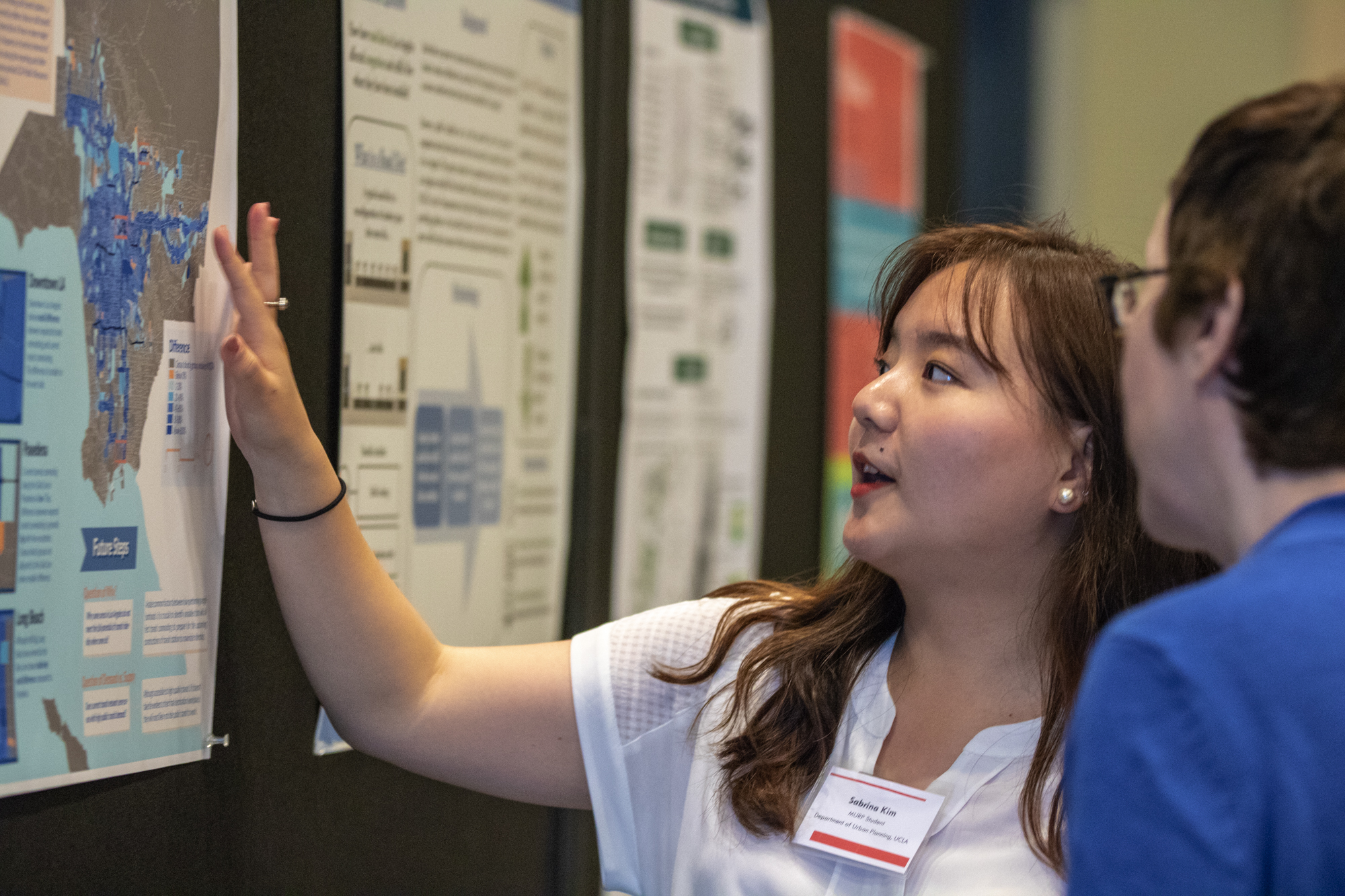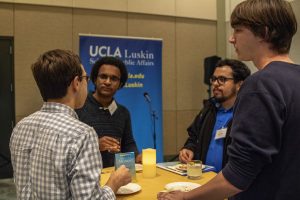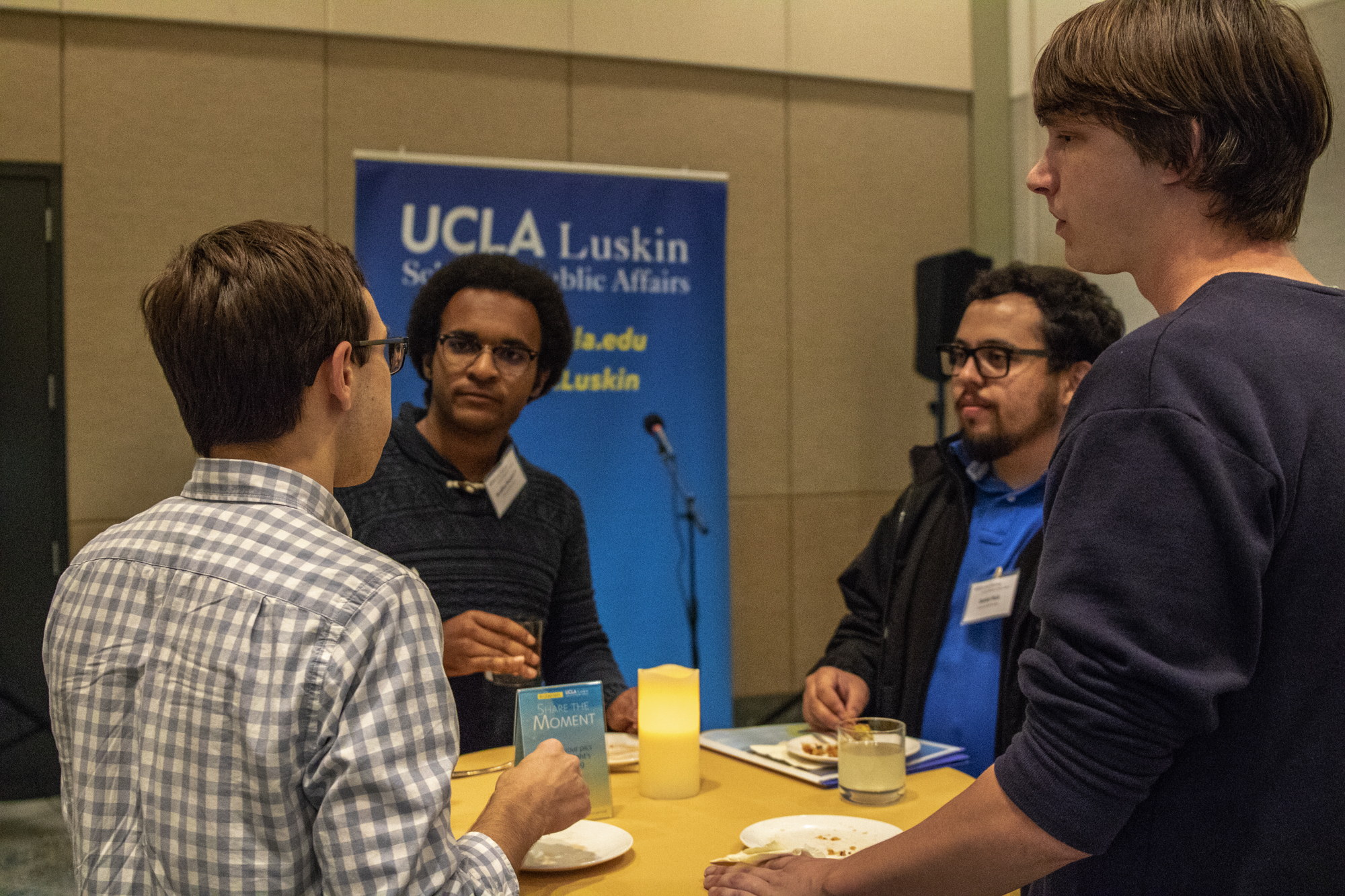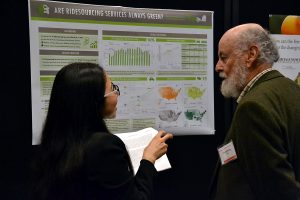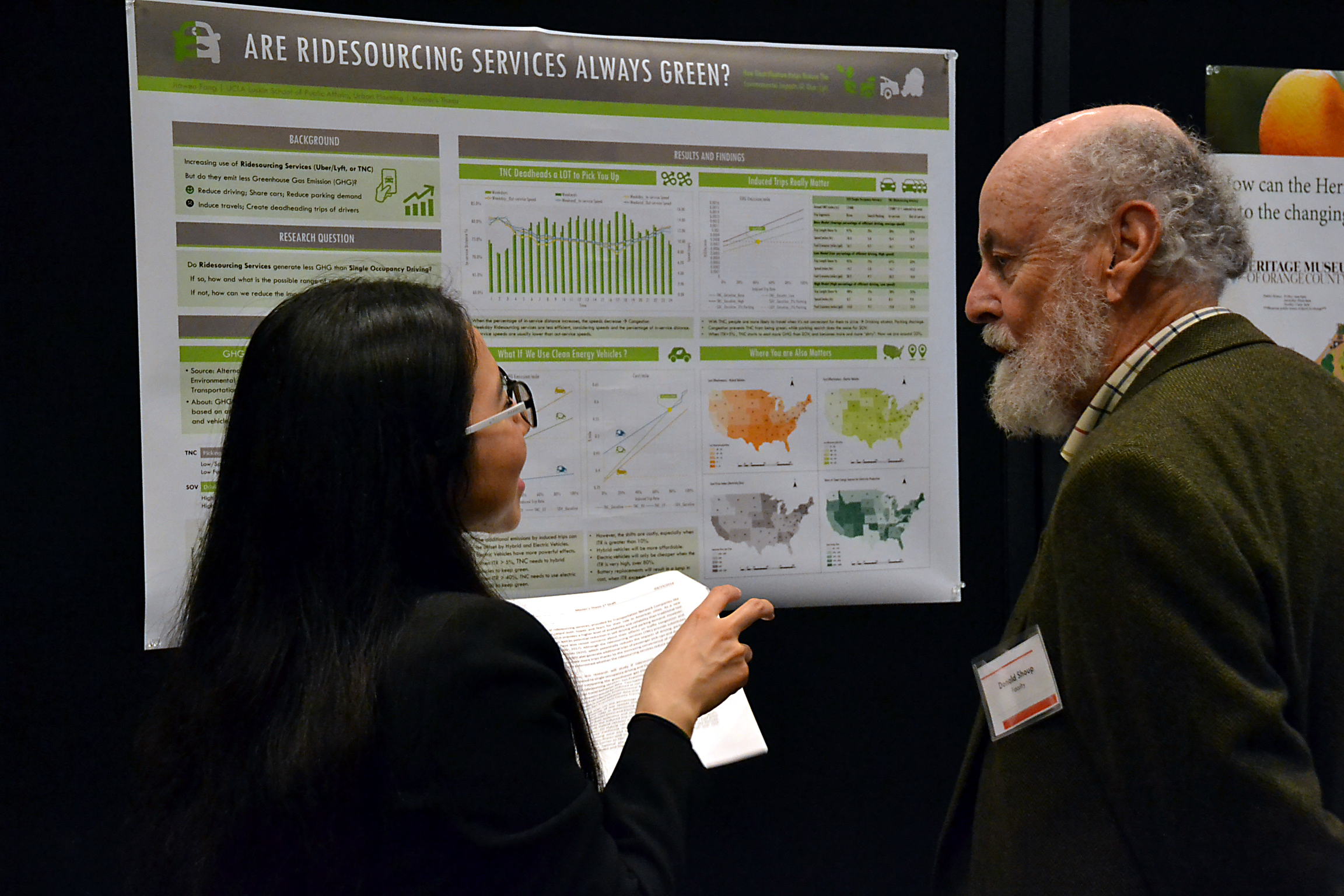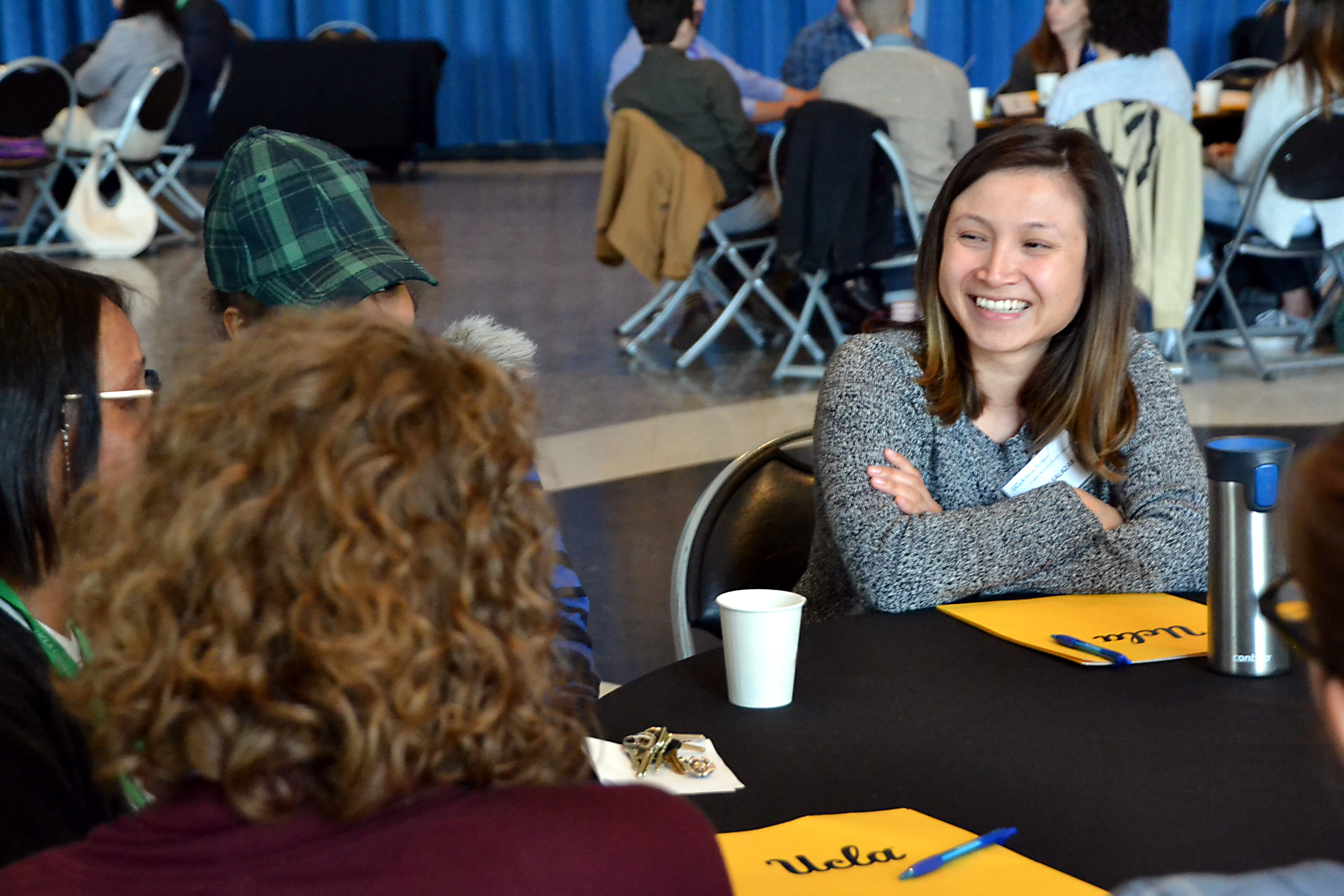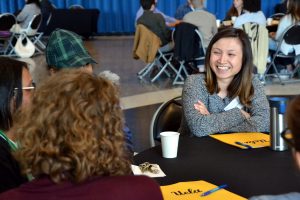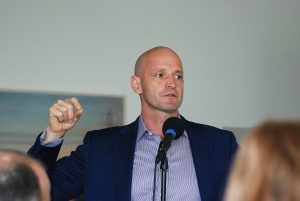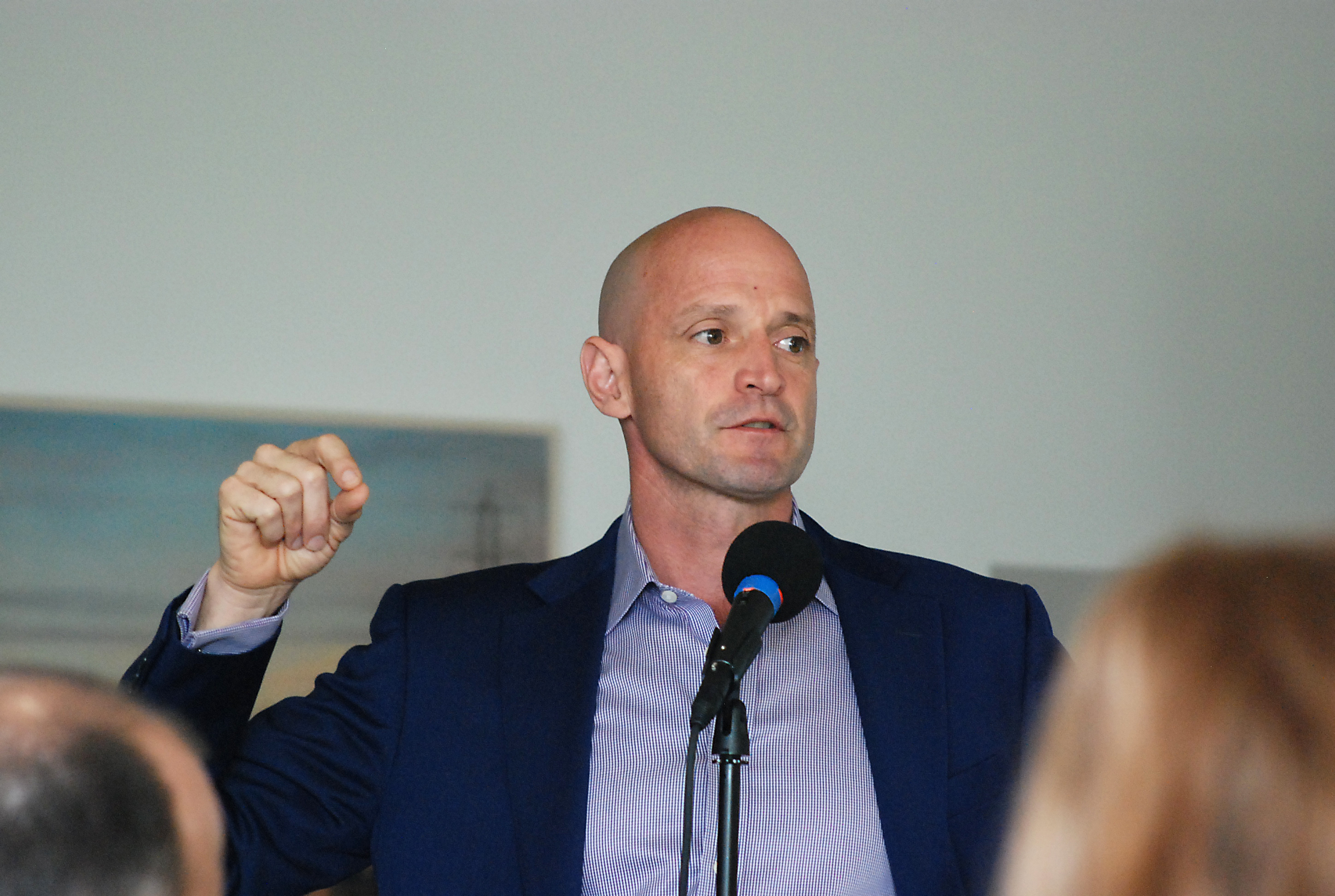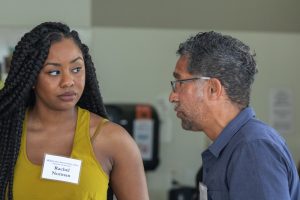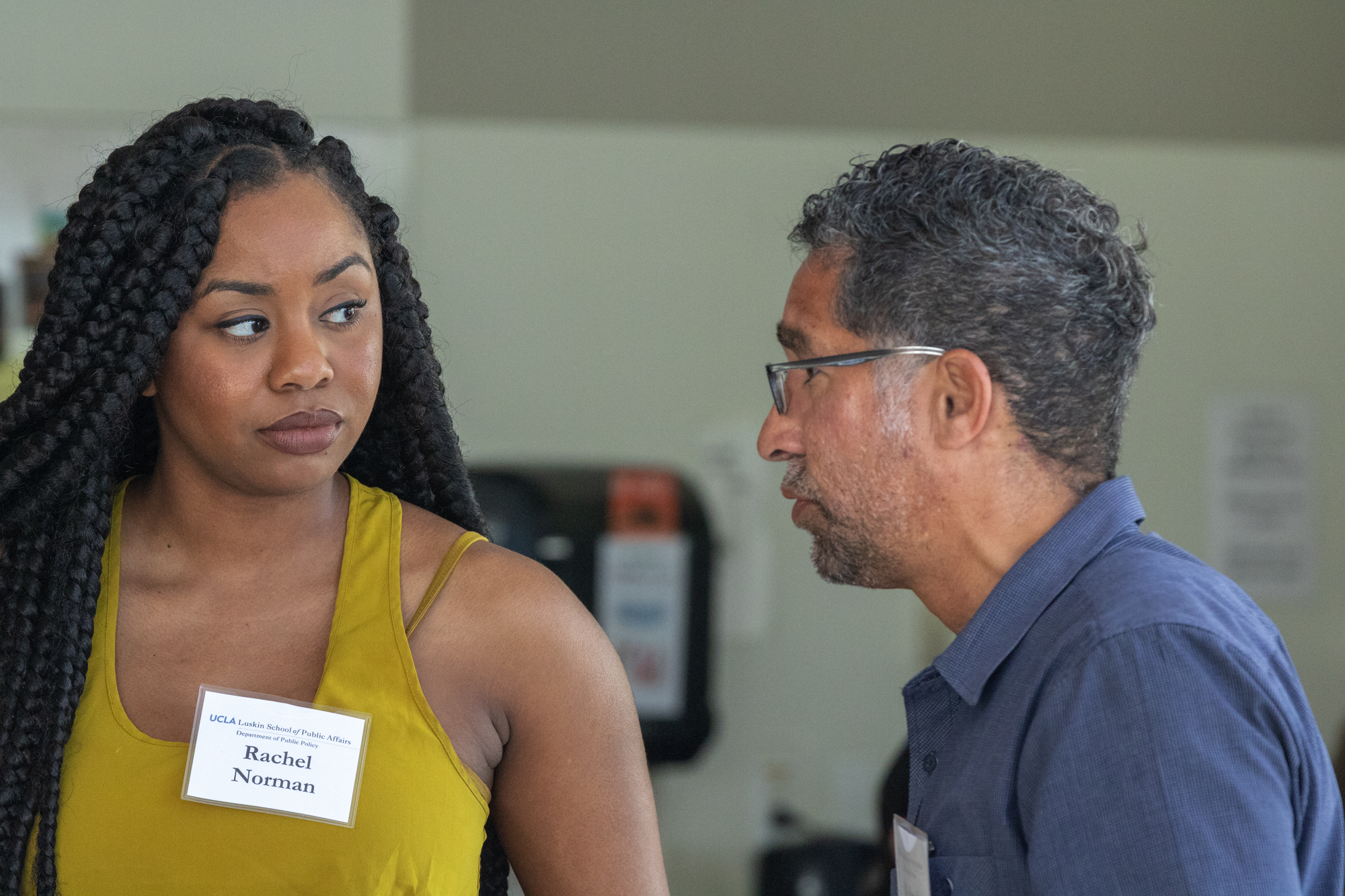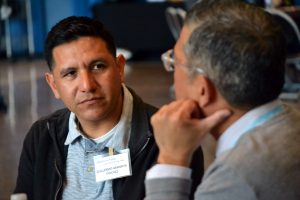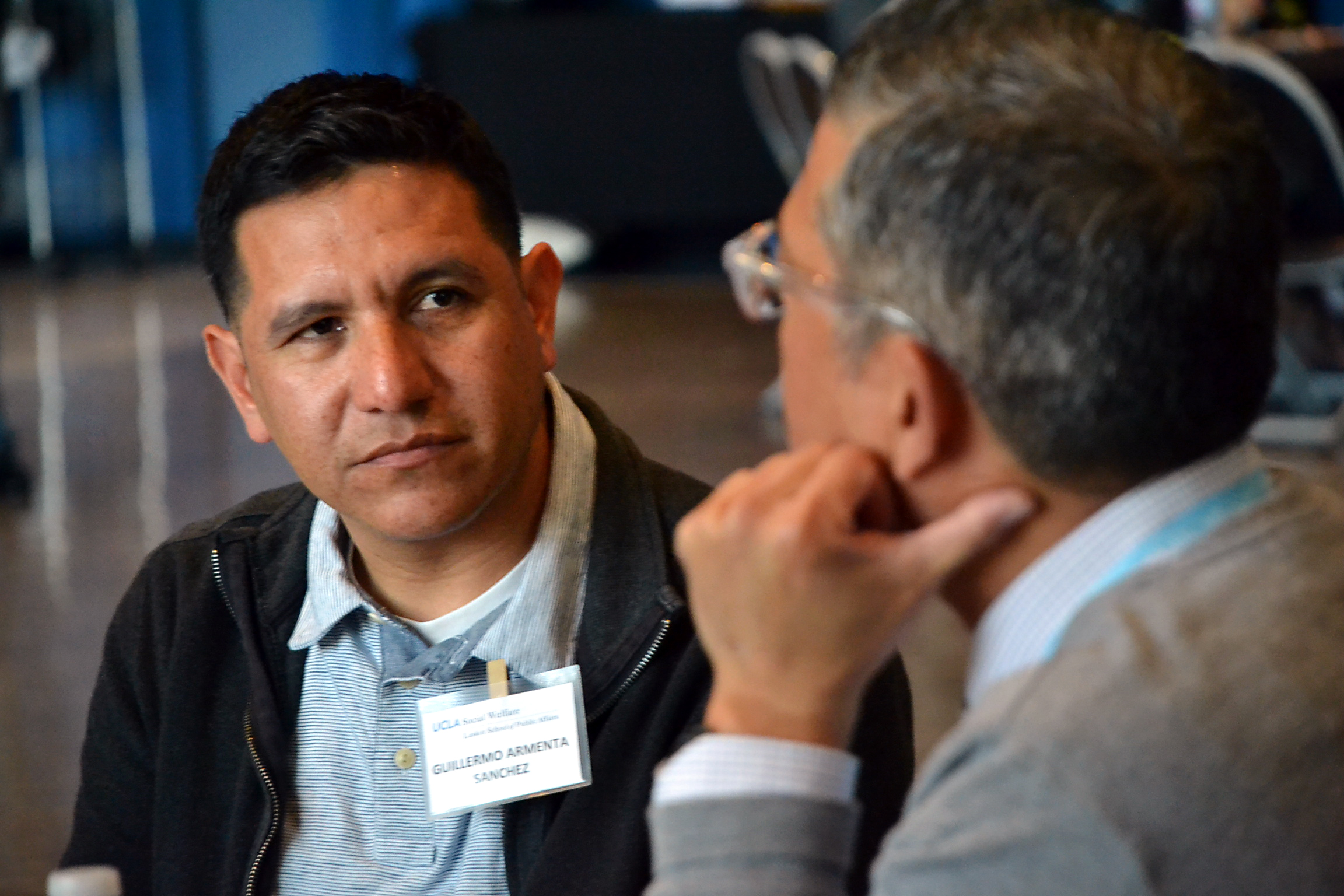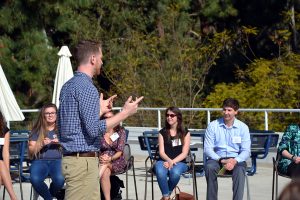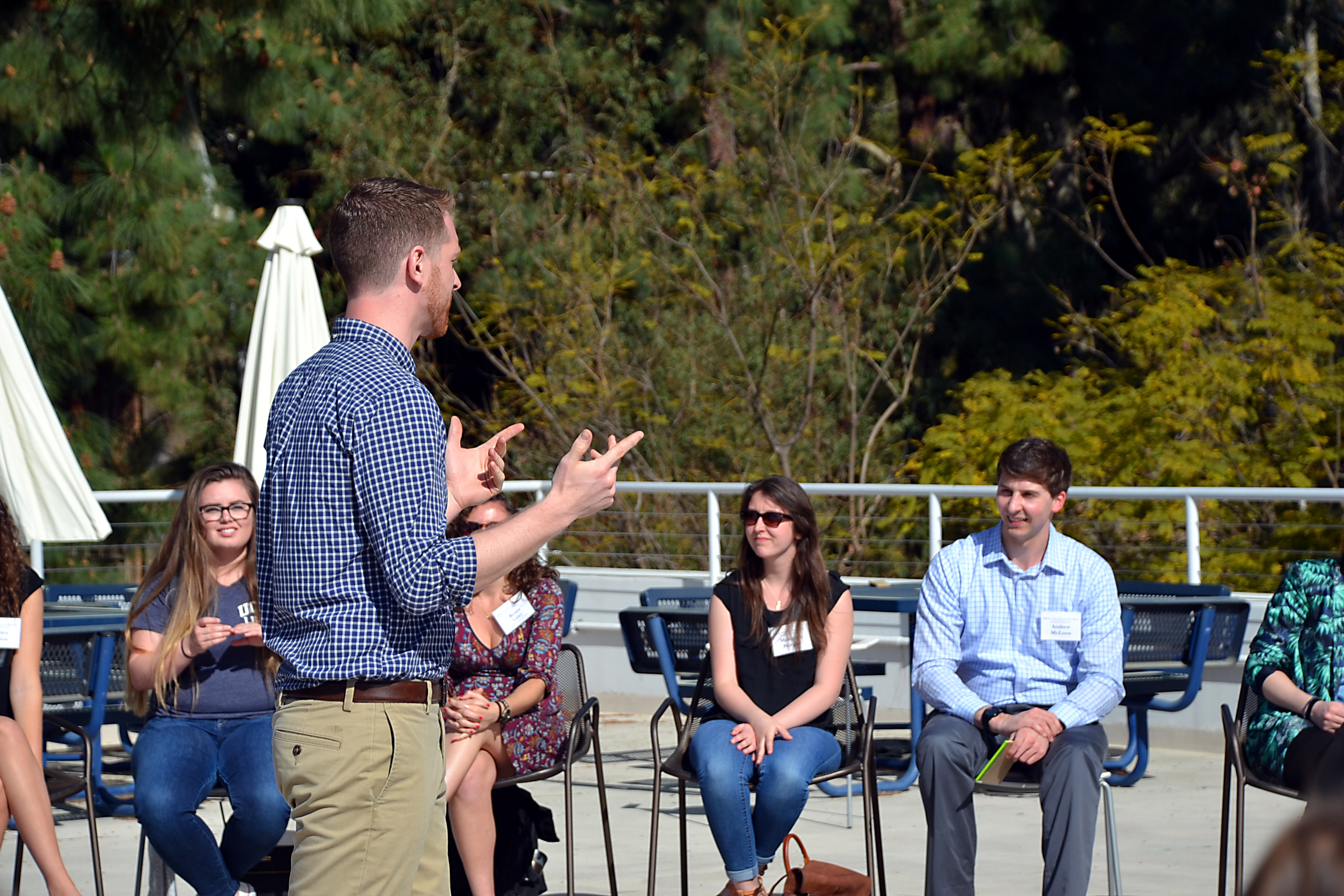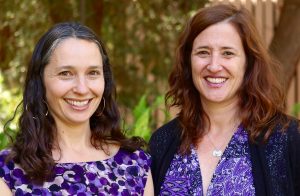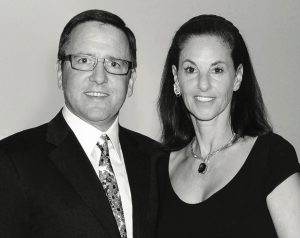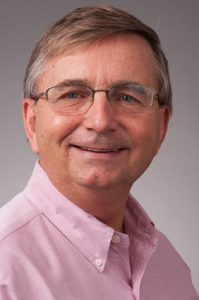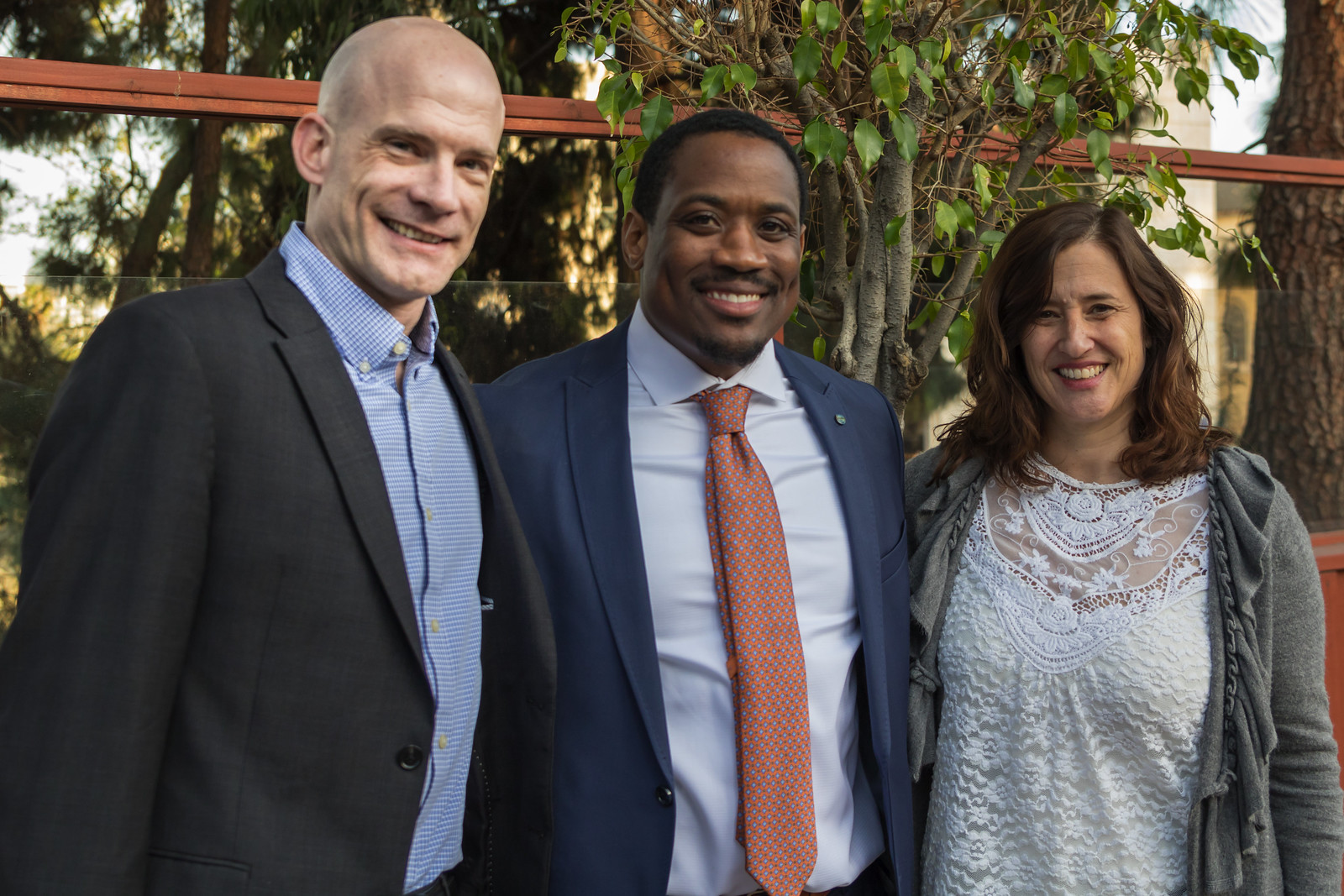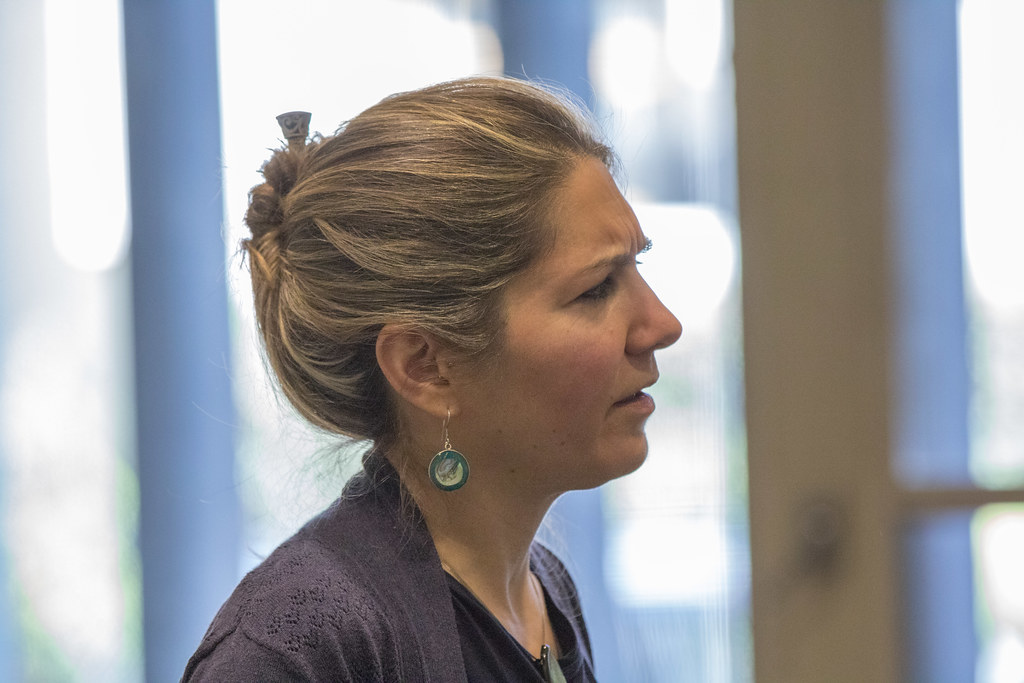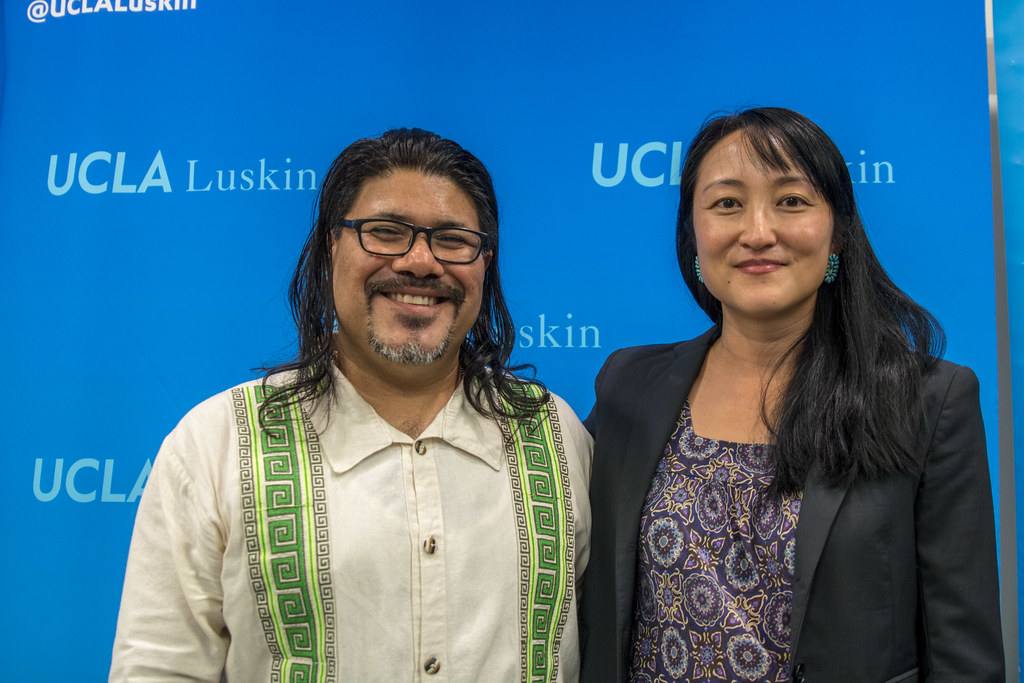‘Get Comfortable Being Uncomfortable’ In commencement address, Riverside Mayor Rusty Bailey issues a call to action to more than 200 change agents from Public Policy, Social Welfare and Urban Planning
By Stan Paul
Before conferring hard-won master’s and doctoral degrees upon the 2018 graduating class of the UCLA Luskin School of Public Affairs, Dean Gary Segura gave one last assignment:
“Act! Act on … any of a dozen major challenges facing the United States and the world. Act! Make this world better. Make this country what it aspires to be.
“Our celebration today is less about what you’ve already done and far more about what you are expected to do,” Segura told the more than 200 Public Policy, Social Welfare and Urban Planning students graduating before an audience of family, friends and faculty in UCLA’s historic Royce Hall on June 15, 2018.
Following the conferral of degrees, the celebration continued at an outdoor reception. The sea of black graduation gowns was brightened by a rainbow of tassels and academic regalia, along with elaborately decorated mortarboards that told the students’ stories, if in a few words:
“For my family that dreams beyond borders.” “53, got my degree.” “Every end is a new beginning.” One message, in Spanish, thanked parents … and coffee. Another honored the past and projected hope for future generations: “I am my ancestor’s wildest dreams.”
One UCLA Luskin grad who put his degree to good use is William R. “Rusty” Bailey MPP ’99, who is now in his second term as mayor of Riverside, California.
“Rusty Bailey’s leadership of Riverside has been characterized by a willingness to put human well-being at the forefront of his city’s agenda,” Segura said, introducing the keynote speaker. The dean cited Bailey’s focus on serving the city’s homeless, encouraging green development, enhancing mass transit and supporting the arts for his hometown of more than 300,000.
Bailey recalled the two decades since he was admitted to the first MPP class at UCLA Luskin.
“I was sitting where you were almost 20 years ago,” said the West Point graduate and former city councilman. “This institution gave me the tools, the confidence and the network I needed to achieve my ultimate career goal of serving as the mayor of my hometown. …
“If there’s any group of people prepared to tackle these issues and others I’ve mentioned, it is you — UCLA Luskin School graduates,” said Bailey, who was named MPP Alumnus of the Year in 2013. “You are equipped with a well-rounded toolkit that includes social advocacy, policy analysis and community development along with an incredible network of professors, research centers and alumni to keep you encouraged, motivated and accountable.”
Bailey cautioned, “You better get comfortable being uncomfortable,” but added, “Luskin has prepared you to handle it.”
Like the dean, Bailey ended his speech with a challenge for the graduates: “Let’s make it happen. Go out into this world and make things happen for your neighbors, for your families and for humanity.”
‘I refuse to let this diploma allow my fight to fade.
The work does not end when we cross the stage.’— Student speaker Gabriela Hernandez
Student speakers representing each Luskin School department underscored the message that their work is not done.
“We did it, but we didn’t do it alone,” said MPP Ramandeep Kaur, the daughter of immigrants who spoke for her classmates in thanking those who made their accomplishments possible. “Hopefully now we can explain what public policy means,” she joked.
Kaur said that public policy has historically been used to support discriminatory practices in housing, zoning ordinances, transportation and labor. “But in my hands, in our hands, it can mean so much more,” she said. “In our hands, having a master’s in public policy means having the tools to upend the status quo and disrupt those narratives.
“As change agents, we’re going to rewrite history and those unjust public policies.”
Urban Planning student speaker Aleli Balaguer said her fellow graduates have been more than just classmates during the rigorous two-year program.
“They are kind, passionate, honest, forthright and unwavering in their vision,” Balaguer said. Coming from very different backgrounds, they shared family stories over meals and traveled the globe together, from New Orleans to Mexico to Japan, the Philippines and Indonesia, she said.
“We hosted each other in our families’ homes and worked on group projects until the sun rose, and we presented at Google and multiple city halls,” she said. But, most importantly for Balaguer, “We imagined better, more equitable cities together.”
Social Welfare class speaker Gabriela Hernandez told her fellow students and audience members, “Today, after years of difficult work, I have reclaimed my anger. I am no longer ashamed to be angry. I call my anger passion.”
She recited a poem recounting her journey in the MSW program to “remind us that no matter how far from slavery and segregation we have gone, there is still hella work to be done.”
Her poem concluded:
“The work does not end when you cross the stage/
You were born to fight for life/
I refuse to let this diploma allow my fight to fade/
The work does not end when we cross the stage/
It marks the beginning/
Let my words sink in, feel what you got to feel then please turn that page/
The work does not end when we cross the stage/
Smile because you deserve it, but do not forget those still trapped in a cage/
The work does not end when you cross the stage/
You call it rage, you call it anger, it’s passion/
Let us hold each other up, together, let us take action”
This year, Segura said, the Luskin School has been true to its mission: improving the quality of life for individuals, families and communities. Students and faculty have taken on issues including greenhouse gas abatement, prison population reduction, gentrification, gun violence, home ownership and homelessness in Los Angeles, and economic development across Asia, Africa and Latin America, he said.
But the challenges that lie ahead are great, he warned.
“We live in perilous times. You enter a career in public well-being at a time when longstanding assumptions about our values as a society are challenged in ways most of us had never imagined possible,” Segura said.
Of the separation of migrant families at the nation’s border, he said: “Today, here in the United States of America, 10,000 children are being held in detention, in cages, with foil blankets, ripped from their parents’ arms. Over 1,400 of them have been misplaced, gone missing, some likely into child trafficking. The country plans to build a camp — a camp — to hold 5,000 more children.”
The dean then asked pointedly, “What are you going to do about this? Indeed, what am I going to do about this?”
Segura sent the newly minted change agents into the world with the words of Henry David Thoreau, “Be not simply good; be good for something.”
View additional photos from UCLA Luskin Commencement 2018 on Flickr:
